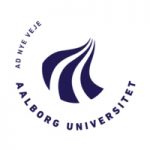项目介绍
Lund University was founded in 1666 and is repeatedly ranked among the world’s top universities. The University has around 47 000 students and more than 8 800 staff based in Lund, Helsingborg and Malmö. We are united in our efforts to understand, explain and improve our world and the human condition.
Lund University welcomes applicants with diverse backgrounds and experiences. We regard gender equality and diversity as a strength and an asset.
Description of the workplace
We are now looking for a driven PhD student who will lead the PhD project “Regulation and management of repeat laden genomes” and contribute to the group’s other research projects. This project is focused on determining how salamanders, which have giant repeat-filled genomes, manage and potentially exploit these elements to accomplish complex tissue regeneration. The project will involve epigenetic regulation, functional genomics, and immune responses in regenerative tissue.
The Regenerative Immunology lab is in the Faculty of Medicine and Department of Laboratory Medicine. The lab is also affiliated with the Wallenberg Centre for Molecular Medicine and the Lund Stem Cell Center. The lab is located in the Division of Molecular Medicine and Gene Therapy which is a collaborative and international environment of around 60 individuals focusing on diverse topics in biomedicine. The Regenerative Immunology lab is currently composed of three postdoctoral fellows, two PhD students, two MS students, and one full-time animal technician. It is located at the Biomedical Centre (BMC) in Lund. The lab values kindness, honesty, open-mindedness and strives to create an inclusive environment. More information about the lab can be found here: Leigh lab.
We offer
Lund University is a public authority which means that employees get particular benefits, generous annual leave and an advantageous occupational pension scheme. Read more on the University website about being a Lund University employee: Work at Lund University.
Work duties and areas of responsibility
In addition to following the study plan for the doctoral education, as well as participating in relevant courses for the education, the following tasks are also included:
- Develop and eventually lead a research project
- Facilitate and manage collaborations with other lab(s)
- Optimize wet lab techniques as determined by advanced bioinformatic analysis
- Disseminate findings in the form of manuscripts, posters, and oral presentations
- Travel to national and international conferences to present findings
- Contribute to functioning of the lab from an organizational and scientific perspective
- Mentor other trainees (e.g., MS and BS students or similar)
The doctoral student must actively participate in seminars and other important meetings and present the project at meetings in accordance with the study plan. Work with animal models is included.
The doctoral student has further responsibility to:
- Seek interactions with colleagues who can discuss and support findings.
- Find and pursue avenues for career support.
- Develop and optimize the ways of communication with supervisors and colleagues that best promote the doctoral student’s learning and development.
Qualifications
Requirements for employment are:
- Excellent reading and writing comprehension in English
- Experience with NGS or third generation sequencing analysis
- Strong knowledge of the theoretical and technical aspects of molecular biology
- A MS degree in molecular biology, cell biology, bioinformatics, or immunology
- Strong knowledge of epigenetics
- Expertise in the biology and the bioinformatic analysis of transposable elements
Emphasis will be put on personal qualities. We are looking for someone who is curious and responsible. The research group and the environment are international and thus good communication and collaboration skills are required. In addition, strong organizational skills and the ability to prioritize are required.
Additional qualifications for the position are:
- Previous experience with studying salamanders
- Experience with CUT&RUN data generation and analysis
- Ability to lead project independently
- Experience managing collaborations between labs
Eligibility
Students with basic eligibility for third-cycle studies are those who
– have completed a second-cycle degree
– have completed courses of at least 240 credits, of which at least 60 credits are from second-cycle courses, or
– have acquired largely equivalent knowledge in some other way, in Sweden or abroad.
The employment of doctoral students is regulated in the Swedish Code of Statues 1998: 80. Only those who are or have been admitted to PhD-studies may be appointed to doctoral studentships. When an appointment to a doctoral studentship is made, the ability of the student to benefit from PhD-studies shall primarily be taken into account. In addition to devoting themselves to their studies, those appointed to doctoral studentships may be required to work with educational tasks, research and administration, in accordance with specific regulations in the ordinance.
Type of employment
Limit of tenure, four years according to HF 5 kap 7§. The employment is a full-term position with the desired start date of 1 September 2025 or according to agreement.
How to apply
Applications are to be submitted via the University’s recruitment system. The application must include a personal letter justifying your interest in the position and how it matches your qualifications (maximum 1 page). The application must also include a CV (with contact info for a maximum of three references), and degree certificates or equivalent. If the application contains any attached letters of recommendation it will lead to disqualification.
The Faculty of Medicine is a part of Lund University, and is responsible for education and research within medicine and healthcare. Our academic programs are closely linked with the healthcare system and are firmly anchored in the faculty’s strong research tradition. Our research spans a broad field within experimental preclinical research, near-patient clinical research and health sciences research. The Faculty of Medicine, with its 1,800 employees and 2,700 students in Lund and Malmö, is a knowledge-intensive meeting place for students, teachers and researchers from all over the world.
The Department of Laboratory Medicine is one of six departments at Lund University’s Faculty of Medicine. We conduct leading research, both broad and specialised, within the field of laboratory medicine, focusing on the onset of disease and how we can improve diagnostics and treatment for patients. Some of our strongest areas with world-class research deal with cancer, genetics and blood.
联系方式
电话: +46 (0)46 222 0000相关项目推荐
KD博士实时收录全球顶尖院校的博士项目,总有一个项目等着你!





